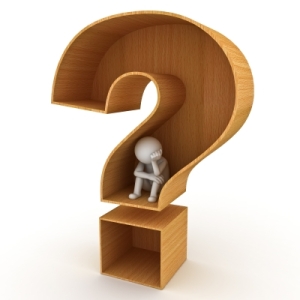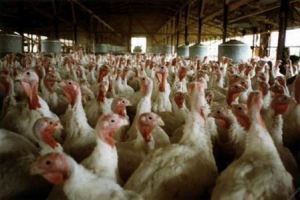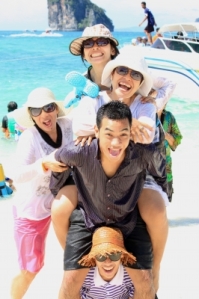Myth: Vegans don’t get sick.
Ever since I went vegan, I catch fewer colds. It may be totally coincidental or just due to other changes in my life that took place around the time I decided to eat a vegan diet, but it’s still interesting to note. This winter in particular I have been especially lucky, not catching anything: cold, flu or otherwise. In fact, I was pretty impressed with my level of fitness over this particularly long and unfriendly winter here in Ottawa.
Now it’s spring. I’ve caught a cold.
Unfortunately, vegans aren’t immune to catching airborne viruses (though how cool would it be if we were!). So, I’m trying to do all right things: drink lots of liquids, ensure I get my RDI of Vitamin C, resting, staying away from evil depressing thoughts, etc. But all my efforts seem to be in vain because this cold is truly getting the best of me. Colds mess with you physically, that is a no-brainer, but it’s also true that you are emotionally affected when you are sick. I tend to notice that I get more irritable, sad and hopeless when I’m sick. (Perhaps a wee bit dramatic, too.) I blame the virus. Perhaps I’ve watched too much Walking Dead, but it’s almost as if it the virus takes you over and you have no choice but to act and feel like Mr. (or Ms.) Crabbypants.
My goal today is to be patient and keep things in perspective. Compared to the rest of the population, as a vegan I’m among the healthy individuals, I can safely say, so I should celebrate the fact that I only get sick on rare occasions, unlike many others.
But it’s soooo hard. :(
Myth: All Vegans Agree
Not all vegans are alike. And Facebook is not a forum for debate.
Sometimes you have to learn this the hard way. I rarely express my disagreement with someone’s post on Facebook, since for whatever reason, too often than not healthy debate ends up ugly with personal insults and hurtful generalizations. However, the other day, I thought that if I questioned an assumption made by a new friend on an issue that we both felt strongly about and from what I thought, we were on the same side–for the sake of argument, let’s call it “animal rights”–I’d be safe from such mud slinging. Apparently not. Within minutes, my polite disagreement with a claim made in my friend’s post was berated, I was called some pretty hateful things that were the opposite of what someone who feels strongly about this issue such as I should be called, and a third party was called into the ring to provide my now opponent with back up insults and big words* in a bullying style attempt to belittle me further.
*[Please note, dear Facebook users, big words do not equate to knowledge or facts;
often they just make you look like a pedantic ignoramus.]
Can you imagine my dismay? I thought that people were more open to a little questioning of bald statements they make on Facebook. As long as the debate is decorous and impersonal, why should one take offense? But obviously, the basic rules of healthy argument are consistently not followed online. People can much too easily hide behind their computer screens, troll the net and telecommunicate expletives your way in the safety of their own personal dungeons. When did name-calling become ok? It took me a good week to recover from that incident, not because I can’t handle someone calling me terrible things, but because (a) the insults were aimed at an aspect of my ethical belief system in which I take great pride, and (b) it came from someone who I thought shared the same basic beliefs as I did.
And the latter is the moral of today’s blog post (more so than the more obvious lesson learned from debating online): Do not assume that just because you share a certain set of ethics and values with someone that you will instantaneously become friends. You may have arrived to your conclusions about life differently than they, to the point that you will vehemently disagree on aspects of your morality.
Veganism is the perfect example. Just because I’m vegan, doesn’t mean I automatically get along with all other vegans. I might be vegan mainly for animal rights reasons, whereas John might be vegan purely for health reasons and Jane might be vegan only for concerns over the environment. While that doesn’t mean I cannot get along with John or Jane, it also doesn’t mean that I will. Our respective vegan badges do very little to convince me that we will be friends. John may be vegan, but also a misogynist, Jane might be vegan, but also a homophobe. Or there’s also the chance that either of them are vegan and completely unhinged.
At the risk of sounding somewhat pedantic myself, when coming from an academic background replete with requirements for citations, primary sourcing and peer-reviewed backing of any claim made, and a general acceptance and encouragement of questioning, criticism and alternative thinking, one is often painfully reminded of the lack of this when trying to argue opposing theories in the real world. And by “real world” I also mean that which the Internet, and particularly Facebook, has created.
As for my new offensive Facebook friend and me, we’re still technically “friends” online, I just don’t follow this person’s news feed anymore… and one day, I will slip away, preferably unnoticed.
–You can always follow Salad in a Steakhouse on Facebook(!)
by liking my page at www.facebook.com/saladinasteakhouse
Confronting death and being vegan
 When a loved one passes away we are confronted with death and therefore are unable to continue through our daily lives avoiding the nagging little voice in the back of our minds that reminds us of our own mortality.
When a loved one passes away we are confronted with death and therefore are unable to continue through our daily lives avoiding the nagging little voice in the back of our minds that reminds us of our own mortality.
I often think about death from an animal rights perspective only because if we view death conceptually, it is hard to tease apart what it means for humans to die and what it means for other animals to die, whether they be livestock (“food” animals), domestic (“pets” and “laboratory”) or wild (including “pests”, “laboratory”, “game”). One way to possibly differentiate is the fact that humans are aware of their impending fate, whereas it appears that animals are not. Therefore, when we witness the death of a loved one, we internalize this experience and reflect often fearfully on our own mortality. On the other hand, it has been shown that other non-human species have also been known to grieve their dead, similar to humans. Yet I wonder if, when grieving, these animals know that this fate will eventually be their own, too. And I wonder if this knowledge scares them.
Another tangible difference is how humans have a culture around death, including disposing/preservation of the body (embalmments, burials, cremations, mummifications, freezing) and developing traditions, rituals, religious rites and prayers all associated with death and grieving the dead. We also have created stories to help the living deal with confronting death, including concepts such as “resurrection”, the “after-life”, “heaven”, “eternal life”, etc. And of course, religious concepts that appear to exploit the common human fear of death in order to control, e.g., “hell”, “purgatory”. For the most part, much of the animal kingdom does not have similar rituals (few animals do bury or hide their dead), and so it seems in doing so, we have become more aware of its presence and the consequences it can have on the conscience of the living.
I think about death on occasion, since for me it should not be such a taboo subject as perhaps it once was. When a loved one dies, be it a family member, friend or pet, I think about it even more as it represents a finality and a force which, try as we may, we cannot overcome nor predict. To die is to leave this world behind and more importantly to not be held responsible for doing so. However, to kill is to choose to force another to leave this world behind without their consent. Killing isn’t inherently wrong, but cutting a life short, which would have otherwise thrived and could have had many happy years ahead, often for base reasons such as one’s personal tastes, is unconscionable. Yet we do so en masse, by the billions with the “food” animals that end up on our plates. I can’t seem to be able to consider my life and the life of my fellow species that different from that of other sentient beings such that murder is acceptable and rational only of the latter. To my mind, when one realizes that to do this would be to compromise one’s basic morality too fundamentally and then decides to confront and rectify this hypocrisy with action, one has no choice but to become vegan.
Death may not be evil, nor may it be the ultimate end of our lives, but whatever it is, we have no right to bring one to it prematurely, especially for such selfish reasons as to satisfy one’s own tastebuds, or to perform an archaic rite or to perpetuate a cruel tradition. Death be not proud and neither should we be if we choose to be its accomplice.
Here’s to a year of positive change!
 Who ever imagined that writing a blog post weekly would be so difficult? I always assumed that inspiration just comes. It just comes. It doesn’t. You kind of have to seek it out — and without it, motivation to write on “just whatever” is all but absent.
Who ever imagined that writing a blog post weekly would be so difficult? I always assumed that inspiration just comes. It just comes. It doesn’t. You kind of have to seek it out — and without it, motivation to write on “just whatever” is all but absent.
As clichéd as new year’s resolutions are, they can prove to be very useful by taking a pitstop in our ever evolving lives and having a self check-in. If we view our yearly resolutions as life’s “to do” list, we are able to effectively analyse our lives by peering inward and determining if we are either on the right track and happy with where we are headed or spiraling out of orbit and unhappy with our current choices. I love this kind of exercise, because it reminds me of my capability to make improvements in my life and that only I can effectuate this kind of change.
One of my resolutions, almost as a recurring event, is to blog more. Preferably once a week. I choose this as an important resolution because I do enjoy writing and I hope that what I write has a positive effect on those who may read it. My personality makes it such that I’m often a “closet” activist (vegan, feminist, environmentalist, etc.), and so blogging provides me with a venue to help me out of my Cancerian shell and promote kindness, conscientiousness and goodness in this world.
I’m interested in hearing what your top resolutions are this year! Many are self-improving, but others are selfless, where we strive to help more, volunteer more and give more. I still have to make my official list, but I know that I’d like to be more active in helping others and myself lead happier and healthier lives.
I think inspiration is all around me, I just have to look for it. Inspiration isn’t perfect, and neither are my blog entries, so as long as I am comfortable with that, I will be much more prolific this year.
Happy 2013 to you all. May this new year bring us all more peace and kindness towards ourselves and others.
When being vegan gets in the way of happiness
 Sometimes my attention to detail makes me terribly slow-paced. How can I go forward with a project, create an elaborate dinner, or press send on an important email, without painstakingly deliberating and debating on how and why it should be done?
Sometimes my attention to detail makes me terribly slow-paced. How can I go forward with a project, create an elaborate dinner, or press send on an important email, without painstakingly deliberating and debating on how and why it should be done?
Being vegan, or more generally, wanting to reconcile my morality with my daily actions, has a similar, but more profound effect on how I function. It often paralyzes me. I don’t want to be unreasonable in my lifestyle, but sometimes if I’m unable to satisfy my broader ethical questions about whether my individual actions have a positive or negative impact on the world, or cause or not undue harm and suffering to others, I just don’t do it.
Take, for example, my love of cats. As clear from my previous posts on the vegan dilemma surrounding owning a cat, I clearly have issues with the prospect. I agonize over on the one hand, being perfectly able to save an animal from possible suffering (or untimely death) and giving it a good life in my loving home, but on the other hand, compromising my veganism by causing undue harm to other animals by choosing to save another. In a nutshell, I often wonder, when considering all of the surrounding circumstances and implications, what option would be the lesser evil, the greater good, or specifically, would cause less suffering. Without a concrete answer, I have yet to make a decision. Consequently, I don’t act, and I find myself in a perpetual state of inaction (which in and of itself could be considered harmful!).
I’m thinking about this from a very basic level of course. If I saw a person drowning whom I could save, but who I knew ate meat, I would certainly save her, despite knowing that her surviving would cause more suffering to animals. Hell, I’d save a cattle farmer, homophobe, or racist in the same situation. This is the same reason why I am not suicidal, given that my existence arguably causes harm to others with or without me knowing. To not risk going back into detail on the feline fix, I will wrap up this lengthy example just by saying that I do recognize that on a basic level, there appears to be some hypocrisy in contemplating not owning a pet, if we compare it simply to letting it die. But if we do this kind of comparison, we run the risk of equating human and animal morality.
In any case, regardless of your position on the matter, I think we can both agree that my overactive mind and attention to the consequences of my actions, no matter how small, cause me to fear making a decision and so, in a way, I deprive myself (and maybe also a cat) of a pleasure from which I could otherwise benefit thoroughly. (This may be the opposite of hedonism.)
But I’m tiring of this cycle of thoughts: Should I do this? Not sure? Freeze.
E.g., Should I knit with wool? Is there such a thing as humanely-sheared wool? Is recycled wool ok? Do some sheep require shearing? Are these sheep just a terrible result of human sheep farming? Does the answer to that question matter for those sheep? Does the answer to that question matter for the vegan stance? Not sure? Freeze.
I want to be happy, but I also want to make the right decision. I love knitting and sharing my home with a cat, but I can’t do both right now (unless I knit with vegetable or man-made fibres–which may also be considered unethical from an environmental perspective–or discover that vegan cats exist–which is unlikely, or at least, unethical). So I don’t do either and I create my own misery.
When 99% of the population feels one way and you feel another way, how can you easily justify your position? Even vegans among ourselves disagree on these issues. What ends up being the greater good? My misery for the benefit of what? I see no tangible benefit from my lack of decision, so it causes doubt. It’s like if you refuse to fly because you think it’s bad for the environment, but every day millions of people are flying around the world. What is your one international flight every two years going to actually do for the environment? Actually? Nothing. There is probably more net gain to your flying than there is to your abstaining from it. When Canada is still exploiting Albertan oil sands, withdrawing from the Kyoto Protocol, shamelessly obstructing progress in other countries to reduce greenhouse gas emissions and ignoring the blatant and precarious signs of climate change, what will cancelling your felicitous trip to visit your friends in Spain do for the world?
Perhaps the net gain of happiness that I would feel knitting and owning–nay, saving–a cat would have the positive ripple effect needed to encourage me to act more than wallow in my own paralyzed vegan state. Many of the positive and negative effects of one’s actions are unknown or cumulative. It is possible I am approaching my internalized ethical debates from too simplistic a viewpoint?
What do you think? Am I just trying to rationalize out things I want to do despite their consequences, or am I being unjustly harsh on myself in a world that will be mostly unaffected by my refusing to partake in certain activities?
Your comments are welcome.
Mellos Restaurant is for Vegans
 Finding a local treasure the old-fashioned way (i.e., not through the Internets, but by just walking in your neighbourhood and discovering new things) is akin to no other. And what would be a better way to stumble upon Mellos, an old-school diner in Byward Market that–from my subsequent fury of research online–was the “pop-up restaurant” of Chef Matthew Carmichael (but no longer).
Finding a local treasure the old-fashioned way (i.e., not through the Internets, but by just walking in your neighbourhood and discovering new things) is akin to no other. And what would be a better way to stumble upon Mellos, an old-school diner in Byward Market that–from my subsequent fury of research online–was the “pop-up restaurant” of Chef Matthew Carmichael (but no longer).
But all that aside, what is more is that this place caters to vegans. No word of a lie. A vintage diner with the most original diner menu in Ottawa (which apparently changes monthly or so) has a chef who cares about vegans, insofar as he will endeavour to make your meal and your diner experience for vegans as fulfilling and delicious as any other customer. This fusion of typical diner fare and vegan cuisine is exceptional and delightful.
–How is it that you’ve never heard of this place?!?–
We’re talking delicious fries with (vegan) gravy, jerk pork (read: seitan) and steamed bun with cilantro, the best (vegan) pad thai you will ever treat your tastebuds to, and whatever else they can cook up. The head chef appears to be no stranger to vegan grub, as he works skillfully with tofu, seitan, tempeh and other vegan protein favourites.
He tells me that the soup is always vegan no matter what. He also tells me, to my horror, that not many people have been ordering off the vegan menu and so it is sometimes hard to defend to the other restaurant stakeholders. I told him it was because vegans are not aware of his resto and wouldn’t expect what looks like a greasy spoon from the outside to cater to vegans, and what’s more, that the vegan food would be AWESOME. He agreed to let me “rally the troups” electronically-speaking, and get vegans aware of this rare gem in the heart of the Market. I told him that vegans are generally all foodies and will flock–literally flock–to Mellos doorstep to try his morsels of deliciousness.
Words of advice and caution to all y’all who are already putting on your runners to make a dash to Mellos:
- The seating is limited, so it is recommended that you make a reservation;
- The chef suggests letting him know in advance that you’re coming, especially if it’s going to be a large group of vegans, because lately, given the lack of popularity–which by the way the vegan army plans on doing something about–he wouldn’t be able guarantee that he’ll be able to make *everything* vegan on the fly. It would be in your best interest to call in advance anyway, because both himself and the staff are extremely friendly and it’s almost heartwarming to talk to them and hear how they will cater to your dietary requirements;
- I can only speak for the dinner menu regarding veganization since that’s the only one I’ve tried.
Now spread the word and try it out for yourselves. This place could be the next vegan hotspot in Ottawa!
Mellos Restaurant
290 Dalhousie St., Ottawa ON
613-241-2909
This Thanksgiving, please think about the turkeys
”I am officially a vegan now. Feels wonderful. People feel so strong about meat and milk, I wish they felt this strong about peace.”
~Arian Foster, two-time Pro Bowler, NFL Star
 Canadian Thanksgiving is coming up next weekend and once again vegans, vegetarians and the ethically-minded alike await with dread the sad reality of what that means for the millions of turkeys that are slaughtered in the name of “giving thanks”. For tradition. We also cringe under the prospect of having to participate silently in these ironic dinners, filled with such love and warmth, surrounded by good friends and dear family, but which showcase torture and misery as a centrepiece for the celebration. I find Thanksgiving to be one of the most unnecessary evils and supporters of an inherently cruel industry. What Thanksgiving should be about is peace and love for ourselves and for others–and this should evidently extend to all of the sentient beings who share a life with us on Earth. If there is one day which you should stop for a second and just consider the implications of your actions, it’s Thanksgiving. If people were to simply take the time to reflect on the implications of their actions and not allow themselves to be happily ignorant or to tolerate their own ethical dissonance, having turkey on Thanksgiving would not even be a consideration. Let us not give thanks for our fortunate lives at the expense of others; that is certainly not the purpose of the holiday.
Canadian Thanksgiving is coming up next weekend and once again vegans, vegetarians and the ethically-minded alike await with dread the sad reality of what that means for the millions of turkeys that are slaughtered in the name of “giving thanks”. For tradition. We also cringe under the prospect of having to participate silently in these ironic dinners, filled with such love and warmth, surrounded by good friends and dear family, but which showcase torture and misery as a centrepiece for the celebration. I find Thanksgiving to be one of the most unnecessary evils and supporters of an inherently cruel industry. What Thanksgiving should be about is peace and love for ourselves and for others–and this should evidently extend to all of the sentient beings who share a life with us on Earth. If there is one day which you should stop for a second and just consider the implications of your actions, it’s Thanksgiving. If people were to simply take the time to reflect on the implications of their actions and not allow themselves to be happily ignorant or to tolerate their own ethical dissonance, having turkey on Thanksgiving would not even be a consideration. Let us not give thanks for our fortunate lives at the expense of others; that is certainly not the purpose of the holiday.
You may wonder what the big deal about having turkey on Thanksgiving is anyhow, aside from the standard arguments against eating meat. Well, we can start with the most obvious culprit of abuse and deception: factory farming. Turkeys on factory farms live only 5 or 6 months–compared to up to 10 years in the wild–at which point they are killed for meat. Their unnaturally short lives are as miserable as a life could possibly be. To name a few reasons why:
- Thousands of turkeys are packed into dark sheds with no more than 3.5 ft2 per bird;
- They are generally genetically bred to get big quick, which means that often these unnaturally large birds cannot support their own weight and are crippled because of it;
- Without pain relievers, turkeys have portions of their upper beaks and toes cut off with hot blades so that they do not peck and scratch each other (which would only be expected in such cramped quarters). The males may get the flap of skin (snood) from the beak to the chest also cut off without anaesthetic. These practices are essentially another form of torture the bird must experience during its pathetic life;
- When they are finally transported for slaughter, many birds die on the journey from dehydration, weakness, etc. as the journey to slaughter is one without food, water or light. Those who survive the journey may have broken bones;
- Birds are killed by having their throats slit as they hang upside down. There is an electric stunning tank which is supposed to stun the birds prior to receiving the knife at their necks, but many birds manage to divert this step and are completely conscious when they are slaughtered;
- Some birds even survive the throat-slitting station as occasionally the knife misses the throat and the bird is plunged into a tank of boiling water alive (for feather removal).
Free range turkeys are no better off, especially since “free range” doesn’t mean shit to birds that will experience the same journey to the abattoir and the same horrific, frightening treatment their during their final day of life. In many cases, the short lives of free range birds are just as suffocating, painful and miserable as their factory farm counterparts as they too suffer many of the same practices outlined above. “Free range” practices do not require much more than just “access to the outdoors” which means virtually nothing. For more info on why free-range and organic does not equate to ethically sound–aside from the obvious ethical anomaly of killing the animals for a guilty pleasure regardless of how you label them beforehand–please read this article.
So make this Thanksgiving for the birds. Give thanks for serenity, peace, non-violence and justice. Do not make a dead, previously tortured animal your incongruous symbol of these beautiful ideals.
And stop trying desperately to remain ignorant of the facts! Ignorance is not absolution. Accept no longer the status quo. Read further, dig deeper and find alternative ways to celebrate this holiday without the need for destruction and abuse of others. How you may ask? I recommend starting by reading this blog post (the second portion offers ideas on how to make your Thanksgiving cruelty-free with vegan turkey alternatives for your dinner). You may also want to buy a “faux turkey” and use a delicious vegan gravy for your mashed potatoes! Check out some brands and recipes here. Finally, you can make your own vegan faux turkey. I’m currently working on getting up a recipe here, so stay tuned!
Before I close, I wanted to make one last comment that deserves mention. Many people agree that having turkey at Thanksgiving is hypocritical and cruel, but they choose to set aside their moral beliefs in order not to offend their guests, who may not be of the same inclination. This type of compromise to one’s moral beliefs is common during traditional holiday seasons, such as Thanksgiving and Christmas, because tradition can be so important to friends and family, and there is some unspoken rule that traditions that involve turkey (or more generally meat) should be maintained, lest you offend others. I’m going to try to make this plain and simple. I do not like offending others either. However, I will not participate in a cruel industry and indirectly murder another being so that I do not “offend others” or so that I keep others happy at the dinner table, or so that they don’t have to think about veganism or animal cruelty too much. It’s the same reason why I wouldn’t–indirectly or directly–do other evil things, such as murder or rape or torture, to appease anyone else. That just does not make sense. And it should not make sense to you.
So please, if you are considering going meatless for Thanksgiving and not supporting cruelty, don’t let fear of others shake your resolve. Remember, they are guests in your home. You are not forcing your beliefs on anyone; they are simply respecting yours. In essence, you are simply living in line with your morals and your friends should celebrate and give thanks to that.
Still not convinced? Watch this video.
Russia: A proud land of intolerance and bigotry

Pussy Riot: sentenced to two years in prison for an anti-Vladimir Putin protest in a Moscow cathedral earlier this year
What is going on in Russia? I really had no idea how scary-controlling and bigoted that country was! LGBT rights simply don’t exist there and apparently neither do some basic human rights that we Westerners take for granted. The Russian powers-that-be have bizarre ways of doling out their bigotry: from “hooliganism” charges for Pussy Riot (equating to two years in prison) to Moscow’s outright ban on Pride parades for 100 years(!) as they allegedly pose a “risk causing public disorder.” Whatever happened to freedom of speech?
Why don’t we ask good ol’ Madonna who just recently was sued for “insulting” a bunch of bigoted anti-gay activists by speaking out in support of gay rights at her concert in St. Petersburg last week. The pathetic thing is, they actually have a case for it! St. Petersburg adopted a law prohibiting any public display or dissemination of “gay propaganda”. This would fall into that category. Someone who’s close-minded moral sensitivities were hurt even went so far as accusing Madonna of potentially causing some boy or girl to become gay (*gasp*), which would lead him/her to not make babies and consequently the country would have fewer people to defend its borders. [Yes, that’s it. Gay people will certainly be the downfall of Russia.] I’m not kidding. This person was serious.
Granted, there has been *some* progress in Russia, particularly the decriminalization of homosexuality in 1993 (and no longer considering homosexuality a mental disorder in 1999); however, being LGBT in Russia is no freedom. A country that so blatantly condones prejudice and nonacceptance of diversity is going to breed a pretty racist, homophobic, and all-around prejudiced bunch. Russia’s deputy prime minister, Dmitry Rogozin, was comfortable publicly labelling Madonna as a whore and threatening to fine her for “homosexual propaganda.” If that’s not telling the public how to feel about it, I’m not sure what is.
Russian freedom of expression appears to be an oxymoron. Perhaps I’m naïve, but these kinds of events I would have expected to read about in Russian history books, not in current news. It makes me sad. It makes me nauseous. It makes me wonder about my own freedoms. Could an extremely right government ever change the course of time for Canada and reverse our basic human rights here at home? Talk of abortion rights and gay marriage circulates regularly at the governmental levels, often encouraged by the media, to see just how far politicians will go in expressing their personal beliefs on these hot topics.
It’s yet another one of those times when I feel somewhat helpless to support a cause I feel so passionate about. I marvel at activism in the height of discrimination and persecution, and part of me wants to join the ranks of my brethren, but the other part of me reminds me of how ill-prepared I would be for such public confrontation. I do benefit from the enormous human rights achievements of the past and I do stand on the shoulders of giants in that regard. I am cognizant of this fact every day and I am thankful. Yet we are still in desperate need of giants now, in countries like Russia, and worse, Uganda, Jamaica, North Korea, … The concept of LGBT rights is an illusion to those of us who live in western bubbles of progressive cities. We are so far ahead of the pack on this front. We need to recognize that people today, in countries not so far off, are being persecuted and silenced in the fear of prejudice and hate.
Eastern Europe has shown their true colours time and time again. Antisemitic political parties still exist and outright scapegoat the Jews for the problems of a country (Hungary). It’s even hard to be accepted as vegan in Russia as most people can’t accept that you are different from them. Racism in Russia is rampant, being “prevalent in 50% of Russians.” And we have already borne witness to what little rights LGBT people have in Russia. Difference is a curse. Conformity is the rule. Diversity in Russia and beyond is frowned upon.
I never want to visit Russia or any other country that does not allow freedom of expression or equal rights for all. This resolution means practically nothing to the cause, I know this, but it’s a decision that helps me cope a little better with the blatant hypocrisy of my life (i.e., enjoying comparatively complete freedom while others do not).
Every decision we make should be guided by our beliefs, no matter how small. May the international pressures and disdain for prejudice lead Russia down the virtuous path of acceptance on a greater scale. Let us pray to Madonna for this.
How to be a happy vegan at a summer barbecue
 There are so few summer weekends and they book up so quickly. It seems like everyone wants a slice of your weekend time and you kind of want a slice of everyone else’s!
There are so few summer weekends and they book up so quickly. It seems like everyone wants a slice of your weekend time and you kind of want a slice of everyone else’s!
We just spent a beautiful weekend at a friend’s house just outside of Ottawa. It was a small party of seven and involved swimming, barbecuing, imbibing and loads of relaxing. Not to mention that the weather was perfect. Of course, when vegans are ever invited to meat-eaters’ barbecues, they essentially have to brace for being around loads of meat and being the centre of attention, whether it is of awe-struck observers of one’s abstaining from eating meat or any animal products, or of excessive teasing or even inappropriate comments in reference to one’s culinary choices. I sometimes have to psychologically prepare for these kinds of events, whether to be comfortable answering the typical questions (genre: “Can you still eat eggs though?”) or to laugh along at the jokes (genre: “Is a vegetarian still vegetarian if he eats a vegetarian?”).
Often the mental pre-prep does little to help with my emotional side when I’m in these kinds of situations, but for some reason this weekend, I was able to look past it and come out on top. I’m not kidding! I was able to have a wonderful time despite all of the teasing and meat-eating from my comrades. The most uncomfortable I felt was when the conversation turned–at least 5 times throughout the party–to discussing how wonderful it is to eat meat. I still haven’t been able to confirm whether this kind of bizarre human behaviour happens more readily around the presence of vegetarians or if this is just the kind of shit that gets carnivores off regardless of who is around (as long as there is at least one other carnivore there who is able to also idolize dead animal flesh). It’s not enough to eat meat, you’ve gotta also talk all about it! Standard topics of discussion usually are limited to:
- Proclamations of one’s love of meat;
- Descriptions of how much one loves meat;
- What kinds of exotic meats one has tried;
- What kinds of exotic meats one would try;
- How much meat can one eat in one sitting;
- How much of a deal one got on the purchase of meat;
- How bloody does one like one’s meat.
There is definitely something sexual about meat. I still haven’t read the books on the sexual politics of meat, but it is totally not a far-fetched idea. Often when men (it’s always men, in my experience) talk about meat, it’s similar to the way they talk about women or men (depending on their sexual orientation). Yeah, kinda gross. But I guess the upside is, at least in my case, I am able to view this behaviour the way a scientist peers into a microscope, like a social experiment and in some ways, this helps me get over the offensiveness of the entire experience.
There are so many reasons to get angry, offended, frustrated or hurt. If you let your emotions take the best of you every time someone else was insensitive, you would be a very unhappy person. Being vegan in today’s society is not easy, because it is still generally acceptable to mock and deride veganism. It’s also acceptable to remain completely ignorant about it. When confronted with an uncomfortable situation, I try to tell myself that we are all on some righteous path, just that some people are farther along than others. I should try to accept that people sometimes just don’t get it and usually are not trying to hurt. Rather, in some ironic way, they are just trying to get along with me. On the rare occasion, I’m successful in convincing myself of this and I am able to have a great time with a motley crew.
You have to decide your own cutoff limit between wanting to have a good time and being offended. You can’t live your life hating the world. Take a break every so often from the inner turmoil and just breathe in the fresh air of otherwise pleasant and good-natured company who truly are happy that you are with them. You might even find yourself more productive in your own moral agenda if you are more accepting–or happier–in your day-to-day.
Conscious happiness
The office is so quiet these days.
Many people take vacation in July and I like the quietness. Me, I’m taking little to no vacation this summer. It’s really my first summer of “9-to-5” style work and I’m not yet feeling the need to flee that other people in a similar situation generally feel during the warmer months of the year. I think I’d rather take vacation in the winter.
Facebook status posts confirm that people are out having a good time, on boats, overseas, at parks, at concerts, with friends, drinking Corona, barbecuing meat, etc. There appears to be a propensity among humans to want to brag about or announce what they’re doing and where they’re going. I believe that in some way it validates their decisions to take vacation and/or spend money on frivolities. But they look happy. And maybe they are happy. And when people are happy, they generally look good–that is to say, “good” both in reference to their condition and appearance and also in reference to their person.
All of the summer-induced smiles on my Facebook feed have given rise to conflicting feelings in me. On one hand, I am gladdened to see such apparent happiness in a world that often appears so sad. These cheerful individuals have somehow overcome the barrage of bad news and found solace in their immediate lives: their family, friends, health and weather. On the other hand, I am troubled by all this happiness despite the knowledge that our lives are in direct contradiction to our morality. I say “our” and not “their” because I feel that I too struggle with my own happiness when I know that taking pleasure in the distorted luxury of our affluent society is only a chimera when coming to terms with the interconnectedness of our lives and decisions and the lives of billions of others, more miserable and wretched than we.
Alright, I don’t want to be a Debbie Downer. There is simply no point in being miserable needlessly just because we know that our excesses necessitate unnamed misery, suffering and deaths. Whether we are happy or miserable in our lives will not change the indirect impact we have on others elsewhere. So might as well be happy, no? Except that our happiness may seem provocative or disrespectful in light of all this. Our misery or frustration may seem more like conciliatory sympathy. But either way, it could be regarded as insulting. So what do we do?
I don’t think that we need to focus on how we feel or how we come across as feeling. If we’re sad, we’re sad; if we’re happy, we’re happy. Our happiness and sadness should not be considered moot only because we benefit from the privilege of living in a rich country with social welfare and relative shelter from harm. What we should focus on, however, is twofold: (1) how can we make changes in our lives to reduce the suffering of others, and (2) how can we be most informed in life so that we are aware of the impact (whether negative or positive) of all of the daily decisions we make (whether it is to eat meat, buy clothes, travel to exotic countries, or simply just spend the weekend at home in an air-conditioned environment)? …all of this of course, irrespective of how we may feel on a daily basis. Consciousness in our daily decision-making–no matter how seemingly insignificant–is for me, the most important step in reconciling one’s morality with one’s actions and reducing the guilt and ignorance which so often may lead to one’s own unhappiness or the unhappiness of others present or absent in one’s life.
If I knew that everyone smiling at me on my Facebook feed was making the conscious decision to smile at me, knowing as best as they can how their opting to do whatever it is they are doing that makes them smile is impactful in so many ways, I would smile back.


